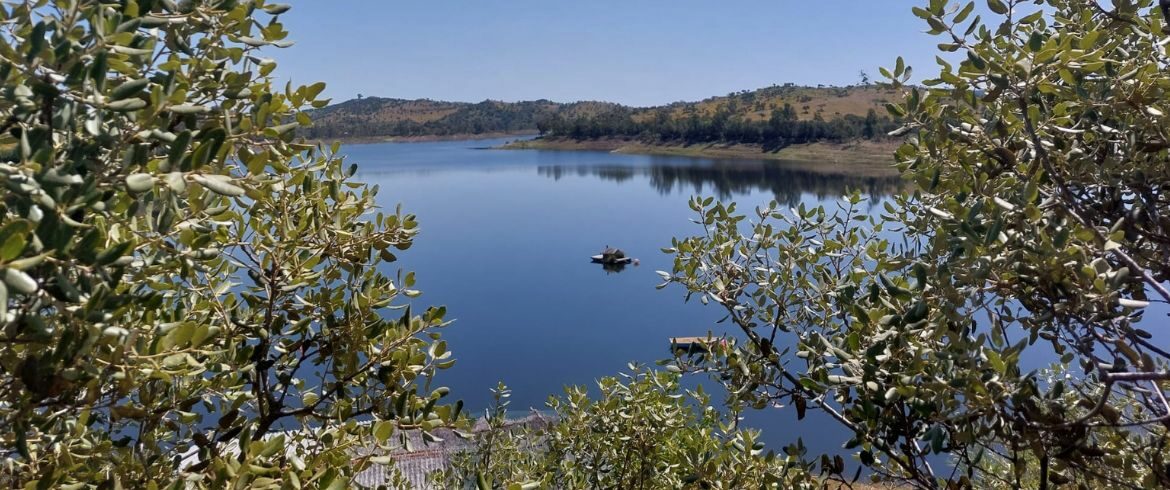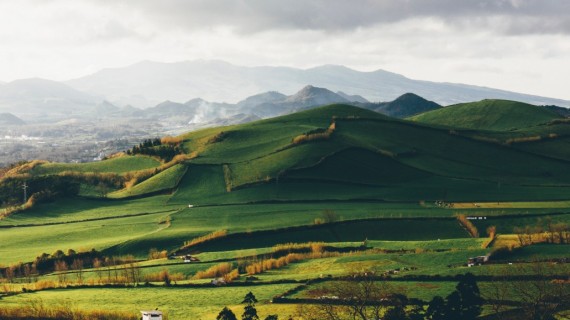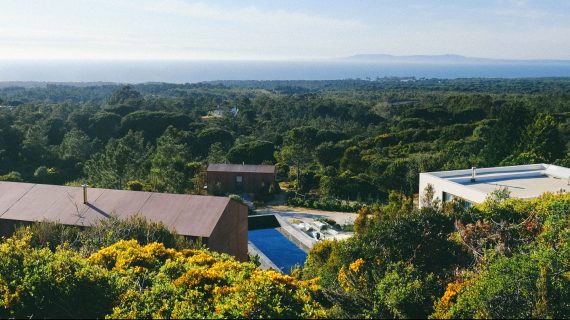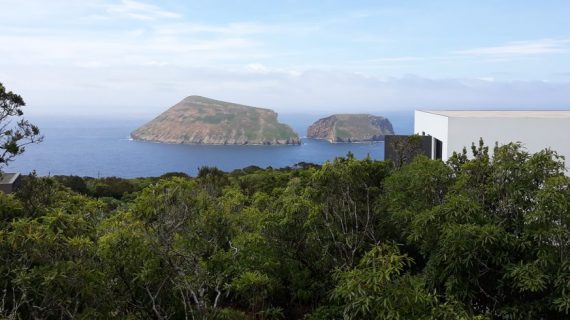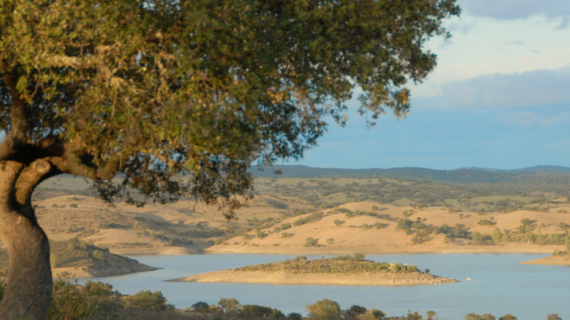When I visited Ilha da Tartaruga, I never expected to find what would later become one of my favorite places here in the Alentejo.
By now the Alentejo, literally “beyond the Tagus,” is a second home for me, and knowing that there are always new places to discover makes it an even more amazing and resourceful region of Portugal. Ilha da Tartaruga is an Ecobnb located in the vicinity of Mértola (part of the Beja district, Southern Alentejo) on the border with Spain along the Chança River, a tributary of the Guadiana River, which in South Alentejo marks the border with Spain. This place, an island or peninsula depending on the time of year, can be reached either by car or by bus (from Lisbon Sete Rios to Mértola).
Here, Theo, has built and realized step by step over the years a true natural oasis. A unique and truly wonderful place. When I asked Theo if he had any pictures to show me, to see what the place looked like when he had just arrived, he pulled out and showed me a series of photos (how nice that there is still someone who prints them out and doesn’t just show them to you from their cell phone!) that showed a dull, colorless place.
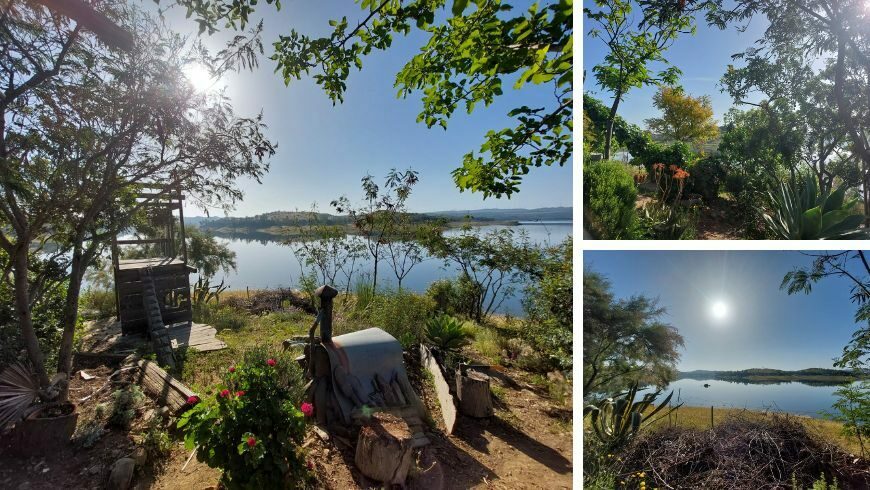
Theo later told me that the piece of land had been unused for many years and when he arrived he slowly managed to give it an identity and nuances that over time have made into the place it is today. From the magnificent garden, rich in biodiversity, that is home to mainly local flora from cistus to herbs such as sage and lavender, to the water streams and pond filled with water lilies and frogs.
The Ecobnb is structured along different spaces. The first accommodation is a caravan to which Theo has given a new life by renovating and recoloring it. Up to four people can sleep here.
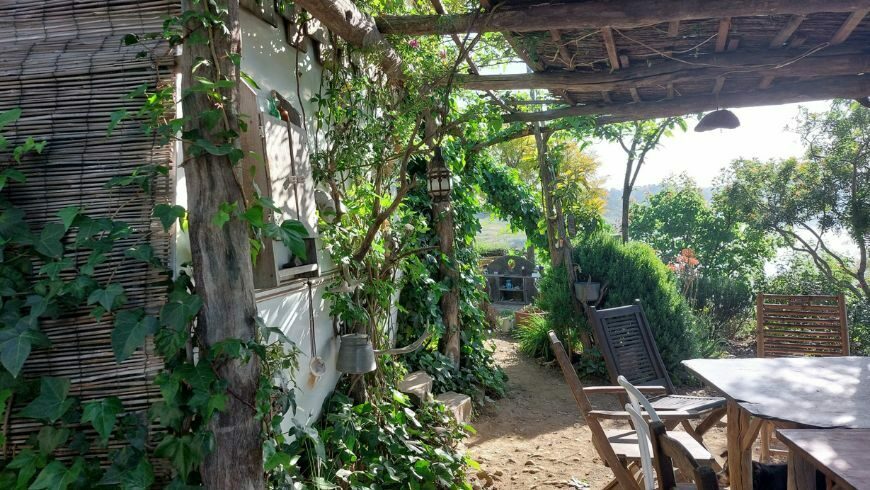
Then we find another accommodation, a small cottage made of wood, whose view is breathtaking. You can admire it from inside the room, which is equipped with a large window overlooking the lake or on the hammock placed outside the room.
We enter another accommodation, which unlike the others is only partially covered by facades made of wood and other natural materials. Perfect in the middle of summer when the Alentejo heat puts you on edge. This space , called “Cozy Corner”, is really well ventilated and open, but still equipped with a mosquito net that covers the bed during the night. The room also features some poufs and a small table, in true “Moroccan living room” style.
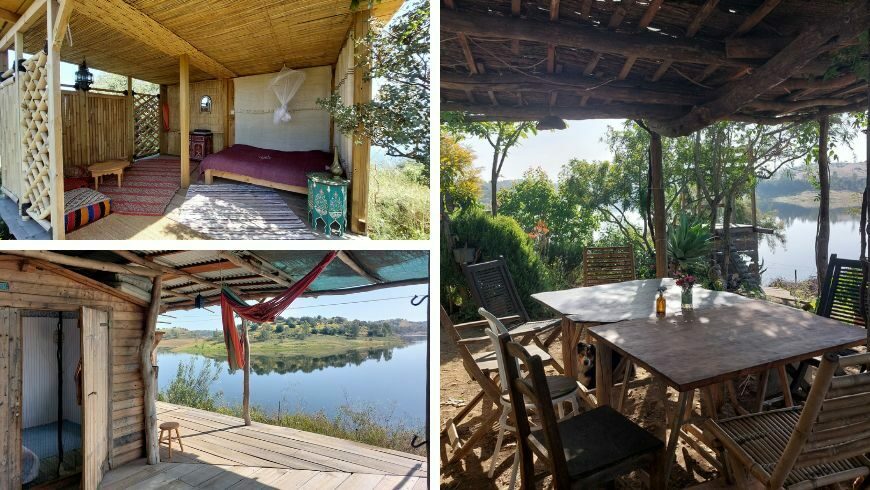
We then arrive at the glamping tent, a splendid centerpiece of this Ecobnb. Here, too, you’ve got a relaxing view of the river and the lands beyond that belong to Spain already.
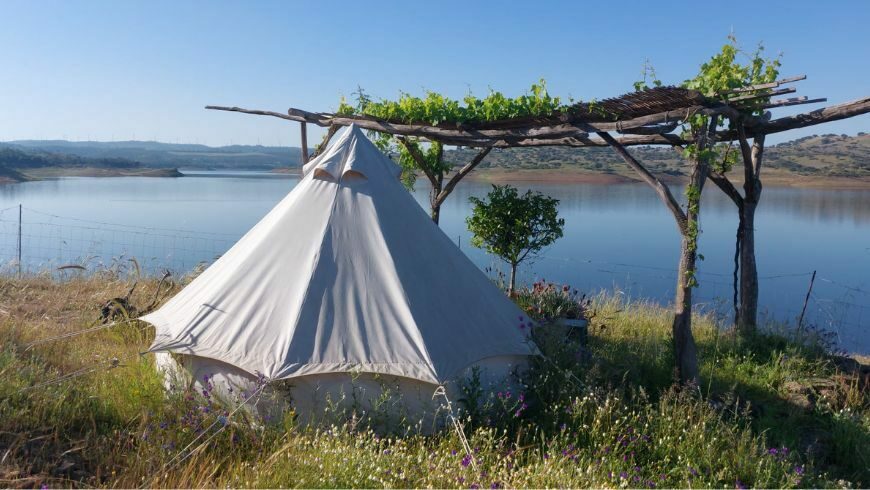
For the more adventurous, the tree house, built entirely by Theo and then furnished and enriched with details over time, is a must-see. When you enter this small room you are catapulted into a myriad of Indian colors and textiles that adorn the room as if it were a small temple. You have two options to climb it: the stairs or to try your hand at climbing and clinging to the branches that lead you to the top.
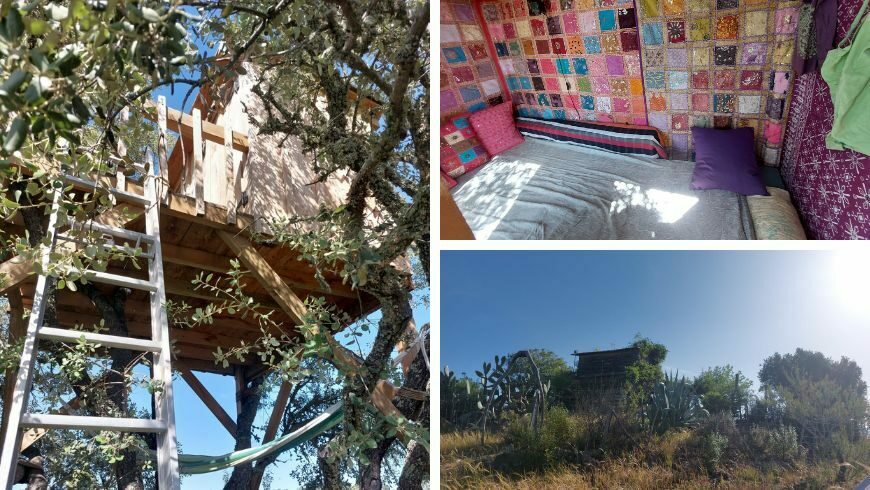
During the days spent here, time is punctuated between a swim and a swim crossing an international border, boat rides or on top of a paddle board, delicious and healthy meals prepared with care by Theo, breakfasts of fruit ripened in the garden, chats around a table sipping delicious herbal tea, the night sky filled with bright stars, the sound of cicadas combined with the sound of cowbells, and the company of holm oaks that complete the landscape all around.
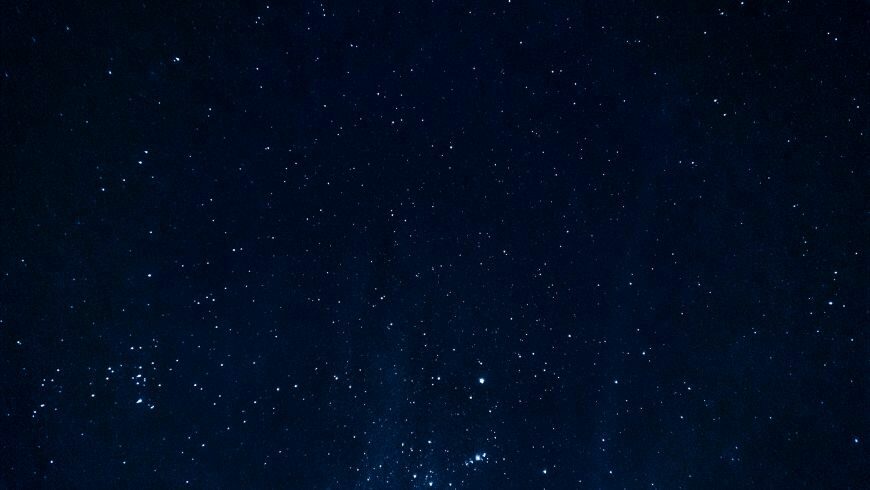
This place is also ideal for those with children, who have an entire open-air playground to have fun, experiment, and discover in an ecological and respectful way what the local environment holds.
Animals will also be great company, from cats to Mara, the dog who was welcomed to the island after she was abandoned, full of energy and affectionate with everyone.
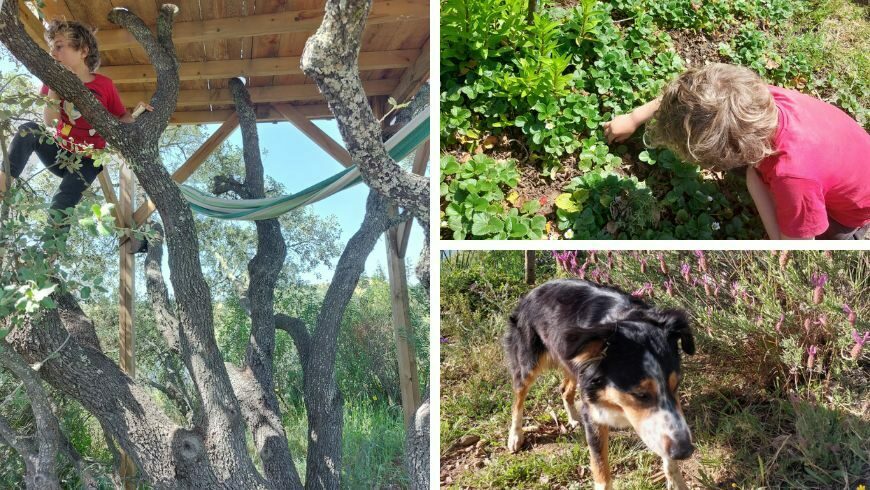
I also had the good fortune to meet David, Theo’s son, the real guardian of the island, and the two tree houses (only on one you can stay overnight). Discovering the secret spaces of the island while playing with him was one of the best things about this stay. Also, Luz, who lent a hand to Theo in running the place, was really very hospitable welcoming me in a spontaneous and kind way. They definitely helped to make this stay so enjoyable.
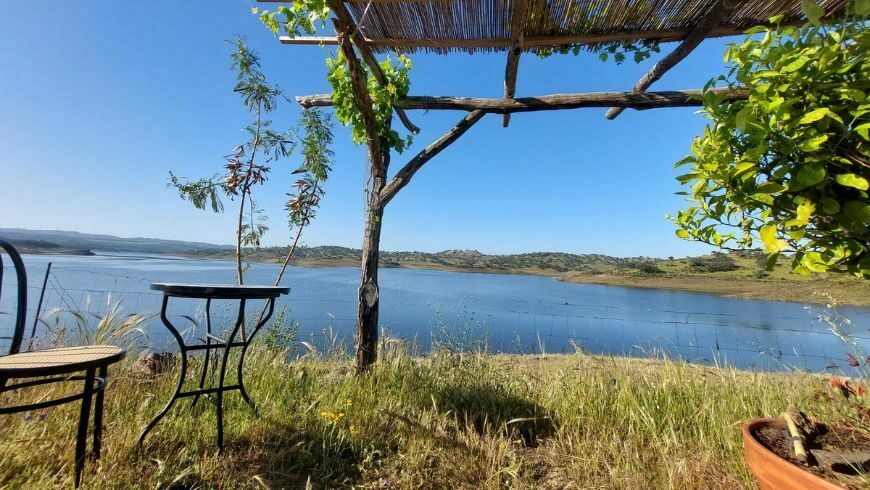
On a wood-burning oven built by Theo, in which he cooked excellent fish for lunch one day, I found an inscription that I think sums up this place fully in a few words “Too many colors block the eyes, too many noises silence the ears“. I hope to return to this special place for me soon.
